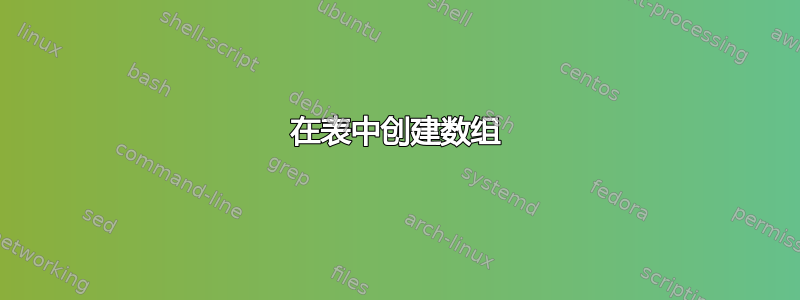
因此,我们有一个表,并且有一个数组,我们希望将其包含在表中:
以下是代码
\documentclass[onecolumn,amsmath,amssymb,nofootinbib,superscriptaddress,floatfix]{revtex4}
\begin{document}
\begin{table}[!h]
\begin{tabular}{|c ||c| c| c| c|}
\hline
$d$ \; & \; $Z$ & \; $UZ1$ & \; $UZ2$ & \; $U$\\
\; & \; & \; \; & \; \; & \; \\ \hline
$d=1$ \; & \; $S_1=\int x_1{}^2$, & \; $Y_3=\int y_3{}^2$, \; & \; \; & \; \\
\; & \; $S_2=\int x_2{}^2$ & \; $G_4=\int g_4{}^2$ \; & \; \; & \; \\ \cline{2-5}
\; & \multicolumn{4}{l|}{$S1, S2, S3, \dots$ } \\ \hline
$d=2$ \; & \; & \; \; & \; \; & \; \\
\; & \; & \; \; & \; \; & \; \\ \hline
\end{tabular}
\caption{}
\end{table}
$$
\left\{
\begin{array}{ll}
S_1=\int x_1{}^2,\\
S_2=\int x_2{}^2
\end{array} \right.
$$
\end{document}
我们有表 I 之外的数组:

问题:我们希望将这个数组形式设置为:
$$\left\{
\begin{array}{ll}
S_1=\int x_1{}^2,\\
S_2=\int x_2{}^2
\end{array} \right.
$$
放入表中,单个数组精确连接两个命令行$S_1=\int x_1{}^2$, $S_2=\int x_2{}^2$ 一起放在表格中。如何做到?
同时我们将 $Y3$ 和 $G_4$ 分开,而不是通过另一个数组连接。
答案1
这是一个更紧凑的代码,带有cases和matrix*环境。此外,由于我不喜欢太小的积分,我使用了包medint中的开关 nccmath:
\documentclass{article}
\usepackage[utf8]{inputenc}
\usepackage{fourier}
\usepackage{booktabs,mathtools, nccmath}
\def\mint{\medint\int}
\begin{document}
\renewcommand{\arraystretch}{1.2}% Stretch out the tabular
\[ \begin{array}{*{5}{c}}
\toprule
d & Z & UZ1 & UZ2 & U \\
\midrule
d = 1 & \begin{cases}
S_1 = \mint x_1{}^2, \\[3pt]
S_2 = \mint x_2{}^2
\end{cases} & \begin{matrix*}[l]Y_3 = \mint y_3{}^2, \\ G_4 = \mint g_4{}^2\end{matrix*} \\
\addlinespace
& \multicolumn{4}{l}{ S1, S2, S3, \dots } \\[0.5\normalbaselineskip]
d = 2 \\
\bottomrule
\end{array} \]
\end{document}

答案2
array将一个放在a 里面并没有什么特别之处tabular:

\documentclass{article}
\usepackage{booktabs,amsmath}
\begin{document}
\renewcommand{\arraystretch}{1.2}% Stretch out the tabular
\begin{tabular}{*{5}{c}}
\toprule
$d$ & $Z$ & $UZ1$ & $UZ2$ & $U$ \\
\midrule
$1$ & \raisebox{-.5\normalbaselineskip}{$\biggl\{$}$\begin{array}[t]{@{}r@{}l@{}}
S_1 & {}= \int x_1{}^2, \\
S_2 & {}= \int x_2{}^2
\end{array}$ & $\begin{array}[t]{@{}r@{}l@{}}
Y_3 & {}= \int y_3{}^2, \\
G_4 & {}= \int g_4{}^2
\end{array}$ \\
& \multicolumn{4}{l}{$S1, S2, S3, \dots$} \\[.5\normalbaselineskip]
$2$ \\
\bottomrule
\end{tabular}
\end{document}
如果你必须“保持是3和4...没有被另一个连接array”,以下产生完全相同的输出(正确对齐是3和4:
\documentclass{article}
\usepackage{booktabs,mathtools}
\begin{document}
\renewcommand{\arraystretch}{1.2}% Stretch out the tabular
\begin{tabular}{*{5}{c}}
\toprule
$d$ & $Z$ & $UZ1$ & $UZ2$ & $U$ \\
\midrule
$1$ & \smash{\raisebox{-.5\normalbaselineskip}{$\biggl\{$}$\begin{array}[t]{@{}r@{}l@{}}
S_1 & {}= \int x_1{}^2, \\
S_2 & {}= \int x_2{}^2
\end{array}$} & $\phantom{G_4}\mathllap{Y_3} = \int y_3{}^2,$ \\
& & $G_4 = \int g_4{}^2\phantom{,}$ \\
& \multicolumn{4}{l}{$S1, S2, S3, \dots$} \\[.5\normalbaselineskip]
$2$ \\
\bottomrule
\end{tabular}
\end{document}
答案3

\documentclass[onecolumn,amsmath,amssymb,nofootinbib,superscriptaddress,floatfix]{revtex4}
\usepackage{array}
\begin{document}
\begin{table}[htp]
\setlength\tabcolsep{8pt}
\setlength\extrarowheight{2pt}
\begin{tabular}{|c ||c| c| c| c|}
\hline
$d$ & $Z$ & $UZ1$ & $UZ2$ & $U$\\
& & & & \\ \hline
$d=1$ &
\smash{\raisebox{-10pt}{$
\left\{
\begin{array}{ll}
S_1=\int x_1{}^2,\\
S_2=\int x_2{}^2
\end{array} \right.
$}}
& $Y_3=\int y_3{}^2$, & & \\[7pt]
& & $G_4=\int g_4{}^2$ & & \\ \cline{2-5}
& \multicolumn{4}{l|}{$S1, S2, S3, \dots$ } \\ \hline
$d=2$ & & & & \\
& & & & \\ \hline
\end{tabular}
\caption{}
\end{table}
\end{document}
答案4
这是一个不同的方法。
\documentclass[onecolumn,amsmath,amssymb,nofootinbib,superscriptaddress,floatfix]{revtex4}
\usepackage{array}
\newcommand{\head}[1]{% %% code stolen from egreg
\bfseries
\begin{tabular}{@{}c@{}}
\strut#1\strut
\end{tabular}%
}
\begin{document}
\begin{table}[htp]
\setlength\tabcolsep{8pt}
\setlength\extrarowheight{2pt}
\begin{tabular}{|c ||c| c| c| c|}
\hline
$d$ & $Z$ & $UZ1$ & $UZ2$ & $U$\\ \hline
\head{$d=1$} &
\head{$
\left\{
\begin{array}{ll}
S_1=\int x_1{}^2,\\
S_2=\int x_2{}^2
\end{array} \right.
$}
& \head{$Y_3=\int y_3{}^2$,\\[7pt] $G_4=\int g_4{}^2$ } & & \\\cline{2-5}
& \multicolumn{4}{l|}{$S1, S2, S3, \dots$ } \\ \hline
$d=2$ & & & & \\
& & & & \\ \hline
\end{tabular}
\caption{}
\end{table}
\end{document}

另一个:
\documentclass[onecolumn,amsmath,amssymb,nofootinbib,superscriptaddress,floatfix]{revtex4}
\usepackage{array}
\newcommand{\head}[1]{% %% code stolen from egreg
\begin{tabular}{@{}c@{}}
\strut#1\strut
\end{tabular}%
}
\begin{document}
\begin{table}[htp]
\setlength\tabcolsep{8pt}
\setlength\extrarowheight{2pt}
\begin{tabular}{|c ||c| c| c| c|}
\hline
$d$ & $Z$ & $UZ1$ & $UZ2$ & $U$\\ \hline
\raisebox{-1.5\height}{\head{$d=1$}} &
\raisebox{-0.5\height}{\head{$
\left\{
\begin{array}{ll}
S_1=\int x_1{}^2,\\
S_2=\int x_2{}^2
\end{array} \right.
$}}
& $Y_3=\int y_3{}^2$, & & \\[-1.25em]
& & $G_4=\int g_4{}^2$ & & \\ \cline{2-5}
& \multicolumn{4}{l|}{$S1, S2, S3, \dots$ } \\ \hline
$d=2$ & & & & \\
& & & & \\ \hline
\end{tabular}
\caption{}
\end{table}
\end{document}



